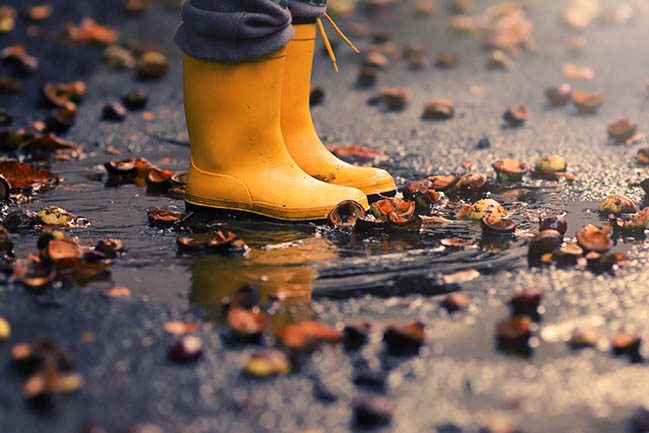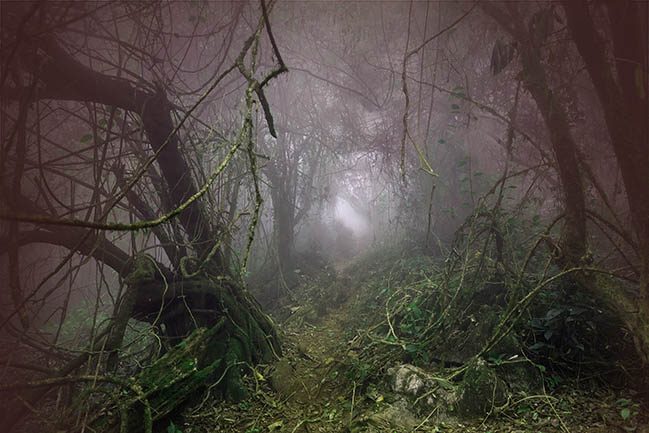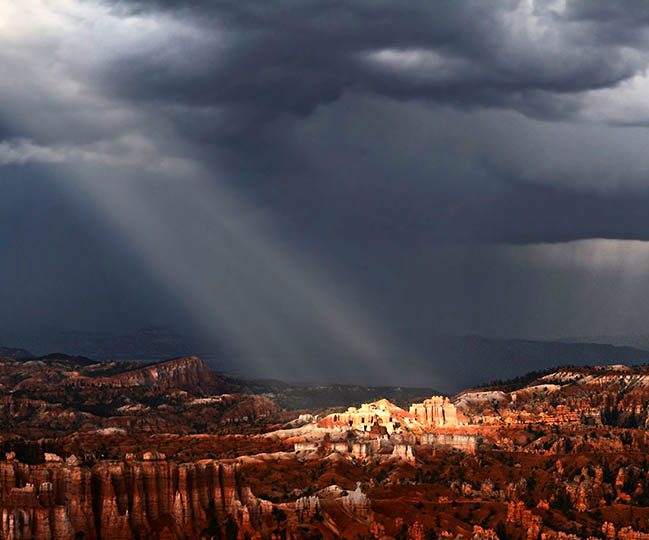First up, let me say that I’m sorry for the long silence. It wasn’t voluntary. I actually tried a few times to write posts, but what I produced was unpublishable.
Since the last blog article, I fell into a gully of worsening symptoms that seemed to have no end. Over the months, I made several visits to doctors but, apart from considering the possibility of long covid on top of the clinical burnout I presumably still had, they couldn’t give me a confident answer. Eventually it became so bad that I had to dig deep into savings and non-existent energy for an overseas flight to recommended medical specialists. Covid was ruled out first with a negative IgG. After a detailed investigation into my case history and weeks of tests, the consensus was that the original diagnosis of burnout was wrong and that I’ve had ME/CFS all along, almost 5 years to date. (I’ll stick to ME for simplicity’s sake.)
If you aren’t familiar with the disease, ME stands for myalgic encephalomyelitis. Good luck getting that one out. It’s also known as CFS (chronic fatigue syndrome), and more recently, SEID (systemic exertion intolerance disease). The name, chronic fatigue syndrome, is sometimes criticized as misleading when used outside of medical circles, because “fatigue” fails to represent the nature of the debilitation or its extent. Among other things, one experiences cognitive impairment, muscle and joint pain, sleep disfunction, and brutal payback after any exertion. Extreme tiredness (a weird sick exhaustion) is a key symptom, but the word, fatigue, in common parlance, suggests something that everyone experiences on a daily basis, something we can just overcome by toughing it out and carrying on with life as normal. Except in the mildest of cases, this really isn’t possible with ME, and attempting it is exactly how to make the disease worse and prevent recovery. The first diagnostic criterion on the cdc website is actually the inability to continue with routine activities that were possible before becoming ill.
EDIT: Just to address a potential point of confusion … The severity of the disease and the exertion level of people’s activities vary considerably, so some will be able to continue in their jobs while others can exert all the willpower they can muster and have no more success than if they were attempting to jog on broken legs.
The physical debilitation can be extreme, but I find the mental side to be worse. The closest comparison I can make is the thick, slow and woolly perception of reality that happens in the seconds following a concussion, except that it often lasted for months. The simplest obstacles that used to be mere bumps in the road became mountains.
Since getting my results, all the details that couldn’t be explained by my original diagnosis have dropped into place. It’s a pity it wasn’t detected earlier. My specialist physician actually had the opportunity to do so four years back but he declined to give any diagnosis. At the most recent consultation, when pressed, he conceded that it was the same condition he had seen before and that everything pointed to ME. The neurologist later gave me to understand that specialists (particularly the older ones who learned about the disease long before it was assigned an official ICD code) are often reluctant to diagnose ME because some doctors have tended to use it as a “dumping ground” for a range of conditions with similar symptoms. (And there are many.) These all need to be excluded by various tests, but it seems that there are cases when the tests are not done and patients are diagnosed with ME when they have something else. The unfortunate result is that some specialists are reluctant to diagnose ME even when all the tests are done and it’s the only illness left on the table. This, it appears, was my experience.
My symptoms were moderate at first, which is why I was able to hang onto a much-reduced work load and social life, but the past 18 months permitted none of that. The experience has been like body-surfing in the ocean when the interval between big waves suddenly shrinks. Where you once had stretches of calm water between the breakers, they now hit one after another, and all you can do is tumble with the whitewater and gasp for air when your head breaks the surface. Since early 2022, I’ve had two short windows of remission. Other than that, it’s been constant whitewater that is only now beginning to settle a bit.
The Gains

My first three years of illness held several cycles of remission and relapse, and it was during the windows of remission that I was able to work a few hours a day, usually for 2-6 weeks before mind and body shut down again. It’s possible that this work may have contributed to relapses (though relapses can happen even when resting), but at the time I thought my problem was burnout and that I was in recovery, hence the slow return to normal activities. Had I known what was really happening, I would have managed it differently. Yet in spite of it all, some of the best sections were written during those times.
My favourite reads reflect life in its sunny hilltops as well as its shadowed valleys, giving an honest and balanced telling of the struggle and the joy of what it means to be alive. I don’t think it’s possible to give a faithful representation of valleys without experiencing some. It’s in the valleys that we have the best opportunity to grow in empathy and respect for those in pain, and writing that touches on pain without respect or empathy is painful in itself. It’s one of many things that teaches me to be grateful for the experience.
But what I’ve gained has not been merely an understanding of struggle. Remember the magic of childhood, that thrill of discovery? I don’t think it’s lost at a particular age; rather, I think we lose it to a way of living, a way of thinking, and it can be recovered. One of the times I see this happening is after an extended illness or injury. Suddenly there is overwhelming joy in a thing as simple as being able to go out for a walk. There’s nothing like deprivation to rekindle an appreciation of life. We see it in little way too. Stars never shine so clear as when the endless clouds finally break, and the streets never look so bright as after a season of soupy fog. For writers, these times in the fog and clouds re-introduce us to the magic in so many things, and when we return to the page it all pours out in fresh new colours.

I don’t want anyone to feel they’ve stumbled into an ambush, so here’s a heads-up that I’m going to mention my faith. It’s a more personal perspective on the core of the whole experience, but I’ll understand if you’d rather skip ahead to the next section.
Over the years, I’ve mostly understated how bad it got, especially on public platforms. The reality was pretty dark at times. There were long stretches of several months when the exhaustion, pain, and dull-mindedness were crippling. Work and socials were was impossible, books were incomprehensible, walking was agony. There was no escape, no outlet for stress. Restlessness became volcanic. It was like being a prisoner in my own body. There was only one lifeline that held, and that was my faith. I could have chosen to be angry with God for allowing something that seemed so unfair, but even though it can feel good in a self-destructive way to rage against God, I’ve seen before how quickly that road leads into a desert. So I took the decision away from my emotions, chose to trust God’s goodness, and grasped the lifeline. Instead of falling into depression, which is typical of this disease, I’ve actually gone the other way and found more peace, hope and joy than I’ve ever known before. After a while I understood why.
It’s easy to think of God more as the giver than the gift, like a kind of divine Santa in the sense that we want more from him than of him. When our arms clutch many things, even good things, we can have limited space for God. When our arms are emptied, we mostly begin by pleading for restoration, perhaps even demanding it. But if we can move past the outrage and quiet ourselves, gradually, in the absence of distraction, we find ourselves being wooed by God, and find him to be a greater treasure than any we lost.
There’s much I could say on this, but one thing that’s relevant to writing involves the pressure. I’ve mentioned before how it can slow progress because of the clangour it introduces to the quiet place where shy inspiration is coaxed from hiding. I would have expected the noise to become even louder through these years of minimal progress, particularly the last 18 months, but somehow it has been displaced more and more with this vast peace. I know the peace that comes from disciplining one’s thoughts. This is something of a different nature and on a different scale – an ocean instead of a puddle – and I can only attribute it to God. In terms of writing, I have no doubt that the resultant clarity of thought will make a considerable difference to the quality and pace of future work.
The Way Out

Perhaps the first step in recovering from sickness is knowing that you’re sick – and preferably knowing what from. Since being diagnosed, I’ve done a great deal of reading on how to manage the disease, and the changes are already showing results. Evidence of this is the fact that I was finally able to finish a blog article, though it took an unusually long time and resulted in a week-long flare-up of symptoms that interrupted the work. Since the plan is full recovery, I’ll obviously need to keep away from such activities that make high demands of mind or body.
Unfortunately, ME has no FDA-approved cure, though rintatolimod is waiting in the wings – at a price that has wings of its own. There are, however, behaviour modifications and some meds that can reduce the chance of relapses, smoothing the way to full recovery. They are gentle nudges, but in the right direction, and direction is everything when trying to escape a bewildering thicket of illness. My neurologist said that if I responded well, it might be about six months before I started to feel like a normal person again and another six until full recovery.
There’s a deep sense of relief in finding answers to something like this, in knowing that it’s an illness one can recover from. This realisation has pushed aside concerns that I burned myself out on a level so deep that a good day’s work would never again be possible. It also tells me that the intolerable slowness of progress reflects illness, not ability, and that when the illness passes, I should be able to get back to a normal pace of life and work. I expect that waking up to normal energy levels and a clear mind will feel like starting the day with about 20 espressos. Friends will probably need to stand back while I learn to manage the comparative overload. There will be a lot of life to catch up on.
Certainly, there are many reasons why I look forward to final recovery, but high on the list is the fact that I have many more books in me and every intention of getting them out to you at a respectable pace. As to how much is left to be done on the next book, it all depends on what I find when I’m able to get back into it. The sections produced during the years of illness were only ever written on clear-headed days, so I don’t foresee any wholesale replacement of big chunks, but I’ll almost certainly need to do a thorough consolidating rewrite – cleaning it up and ironing it all out.
My sincerest thanks to all of you who’ve stuck with me over the years of disappointing progress and not knowing (along with me) what was happening. I hope you’ll find the continuation of the series worth the cost of standing by a sick author. I’ll post again when I’m out of the thicket and working through the revisions. See you on the other side.



I’m glad to hear the news good luck I’ve checked back many times to see if anything was happing good to hear from you
I am so sorry for your illness. This blog was a real blessing to me. I was in my library and saw and pulled Dawn of Wonder to reread and buy book 2. Well your blog explains it. I am a neurologist and I developed a severely life altering exquisitely painful neurological condition. I was so confused by the pain and inability to walk on my right foot that I didn’t know what was happening and a friend that is an orthopedic surgeon actually diagnosed it. I can only laugh at that now. I have diagnosed iCRPS well over 100 times in my career. But suffering is confusing and affects everything in your life. Everything. Now 5 years into it I got my life back and my problem just tags along but it doesn’t define me and hasn’t defeated me. Matter of fact I am a better doctor now that I really understand pain and love my patients and the feedback they give as well as understanding. I can’t do everything I used to do. I love your description of not being able to walk. In fact hearing the word “walk” for a time triggered negative thoughts. It’s a process but I am in God’s hands just like you. It’s hard to love yourself when something like this happens but little things are more more appreciated and just as fulfilling. Good luck to you on your journey. I am rereading the book. Your name has been on my mind over the years as a great author. Thank God for books! I Just reread Steven Erikson’s Malazan complete with YouTube analyses. So fun. God bless you sir!
Thank you for sharing this. I wish you well and share the faith you have in your own recovery . I’m happy to hear that on this journey of recovery, you have been able to find more peace and strengthen your union with God.
The valleys you’re walking through do make you stronger.
I look forward to more of your wonderful stories when you’re ready to share them with us.
I am so sorry that you are ill. It is a testimony to the amazing book you’ve written, how many are asking for the next one (myself among them). It seems you are on the road to greatness. The time between books is hard on readers – but so much harder on you, especially in your circumstances. Thank you for your sense of wonder. I hope to be able to read more, when you are able to write more.
Words cannot express how excited I am for the next book to release. I hadn’t really read any books in many years, but when I first came across Dawn of Wonder, something compelled me to purchase it. I feverishly consumed each page until I was finished with the book. Something had ignited within me; an awakening, if you will. Since then I have restored my passion for fantasy novels. I’ve read well over 100 books, many of them epic fantasy novels, since picking up Dawn of Wonder.
Thank you, Mr. Renshaw, for writing such a great book. I look forward to all of your future works.